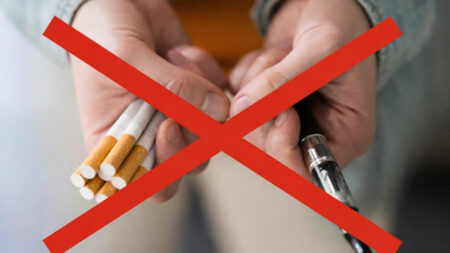A significant increase in tobacco taxes in the Netherlands has led to a surge in smokers purchasing cheaper products abroad, raising questions about the effectiveness of national tax policies in small, wealthy countries with open borders. After the Netherlands raised cigarette prices by 24% and rolling tobacco by 45% in 2024, an estimated 60% of Dutch smokers bought tobacco products in other countries, up from 40% in 2023 and 30% in 2020.
According to analysis by the Dutch Public Health Agency, while the tax hike did lead 7% of smokers to quit and 22% to reduce their consumption, the rise in cross-border shopping indicates that "pricing policy is becoming less effective." The agency recommended restricting the number of tobacco products that can be brought into the country and also called for excise taxes on e-cigarettes to prevent youth uptake.
The World Health Organization (WHO) advocates for high tobacco taxes as an effective measure to curb smoking, recommending a minimum tax rate of 75%. However, the Dutch experience highlights a challenge for high-tax nations within the EU, where significant price disparities exist. Taxes on a 20-cigarette pack range from €1.92 in Bulgaria to €9.92 in Ireland, with the Netherlands having the second-highest rate at €7.66. This could change, as the European Commission is considering raising minimum excise duties across the bloc, a move supported by the Netherlands and 14 other member states to create a more harmonized market and strengthen public health measures.

Vape Content Creator | Flavor Reviewer | Lifestyle & Vape Culture Editor
Emily Carter is a vape-focused content creator specializing in flavor reviews, device aesthetics, and lifestyle-oriented vaping content. With hands-on experience testing disposable vapes and pod systems, Emily delivers clear, visually driven insights designed for adult consumers.








